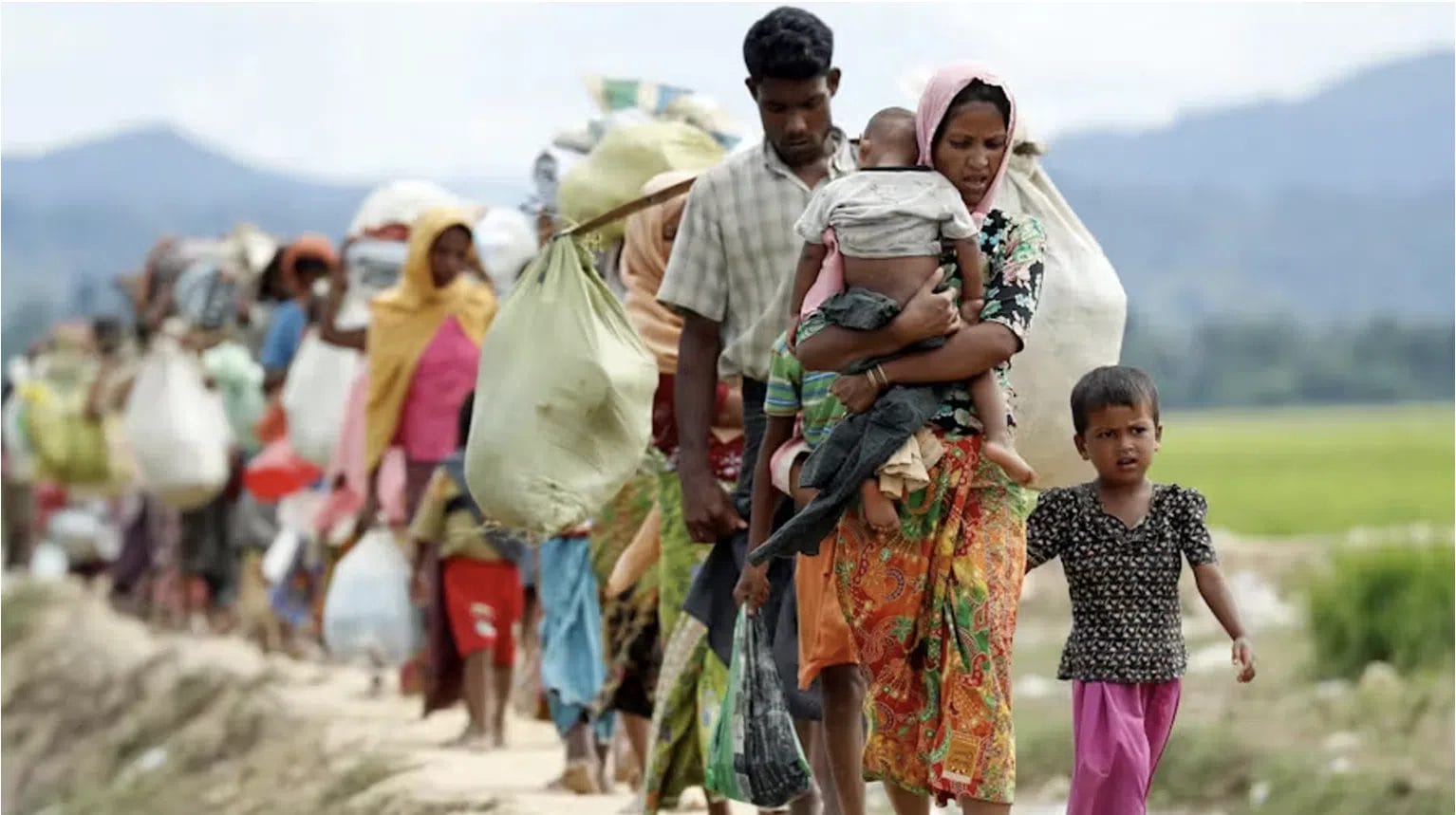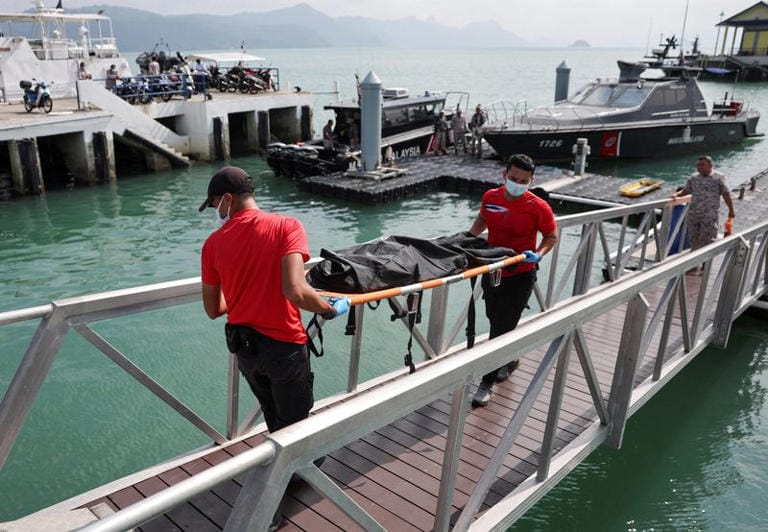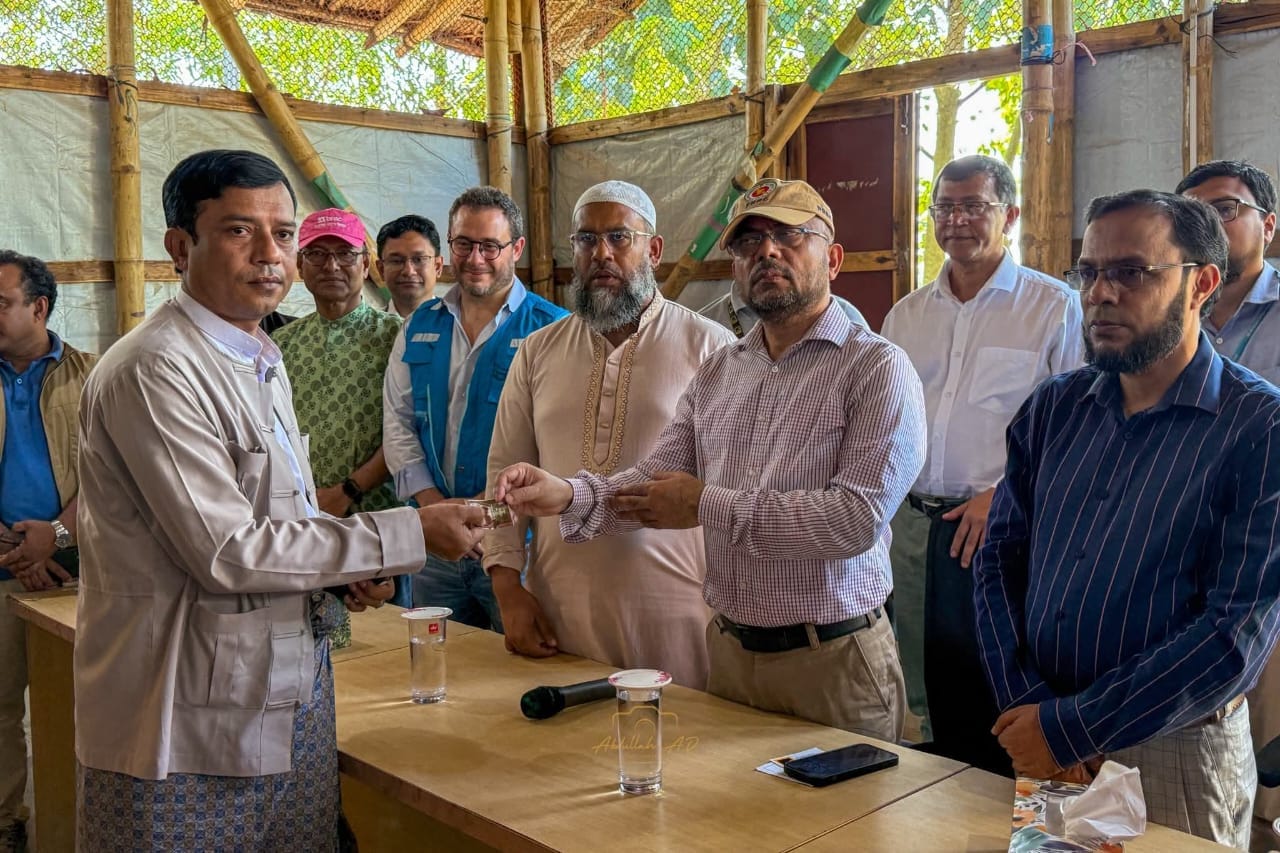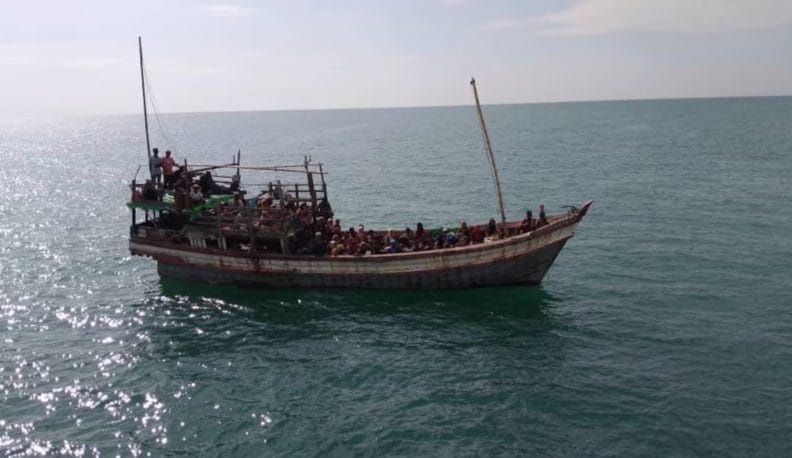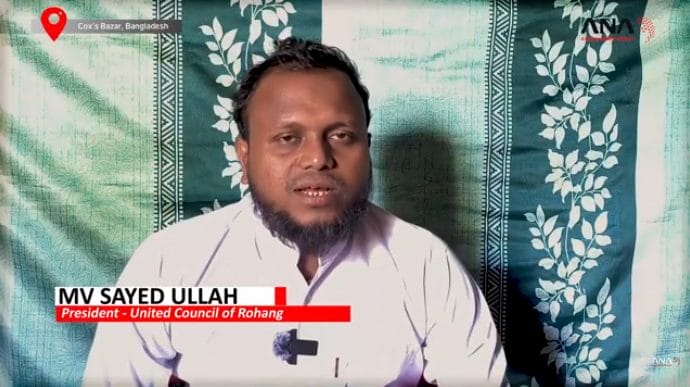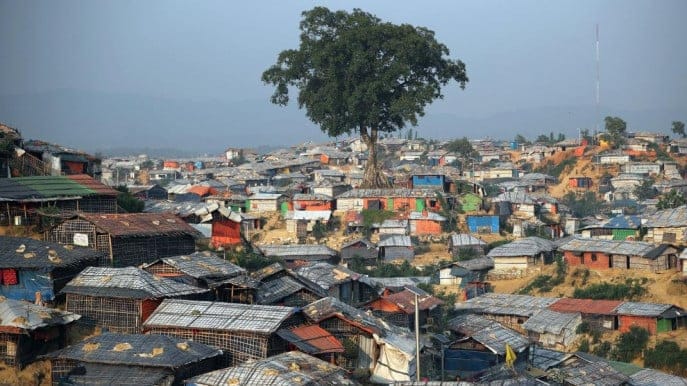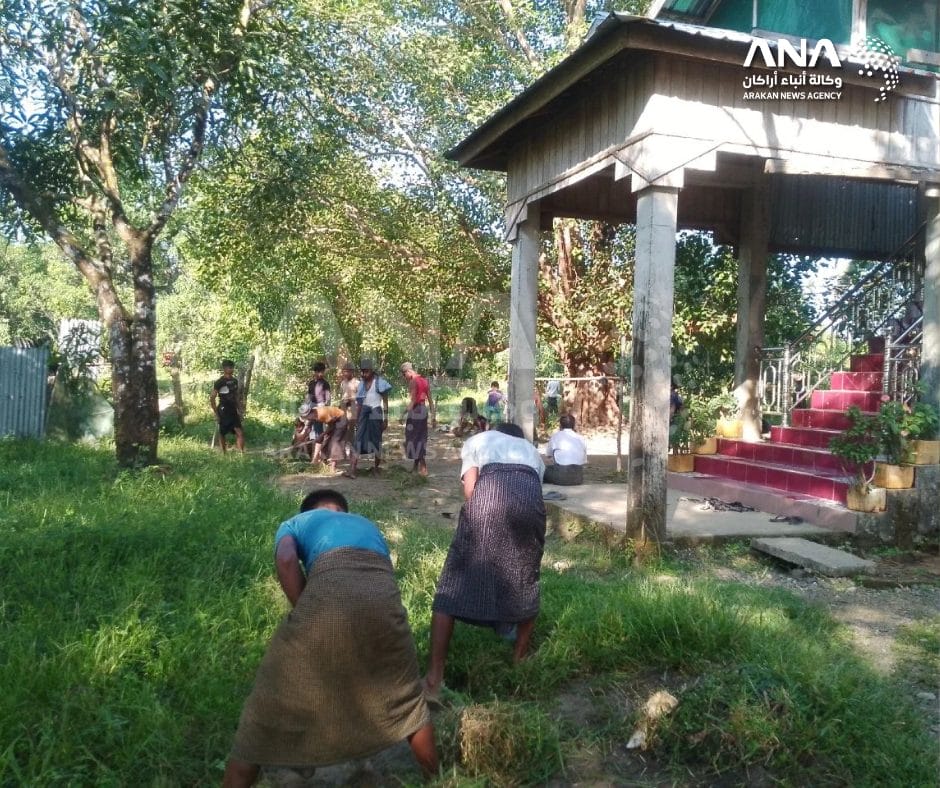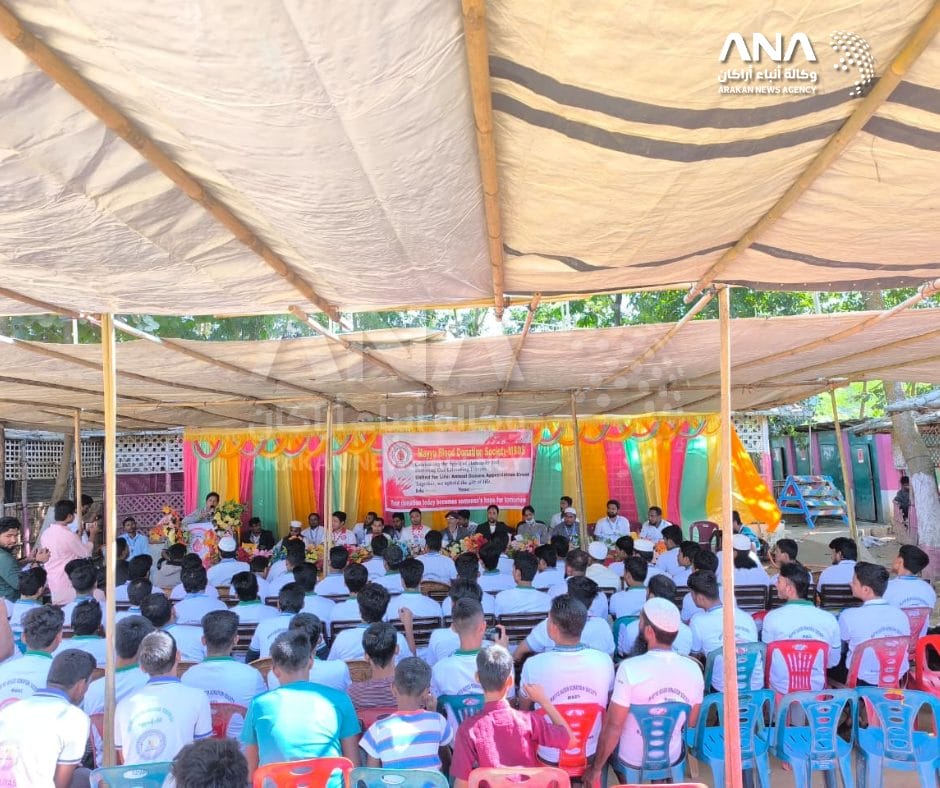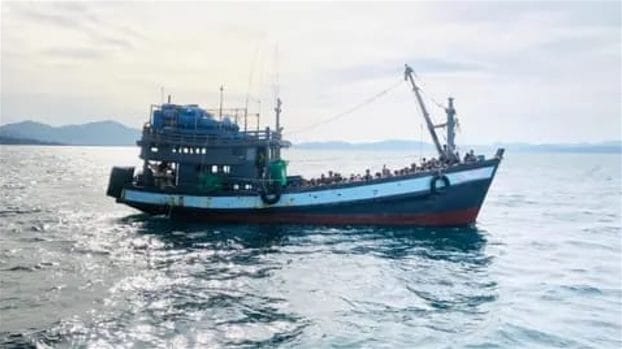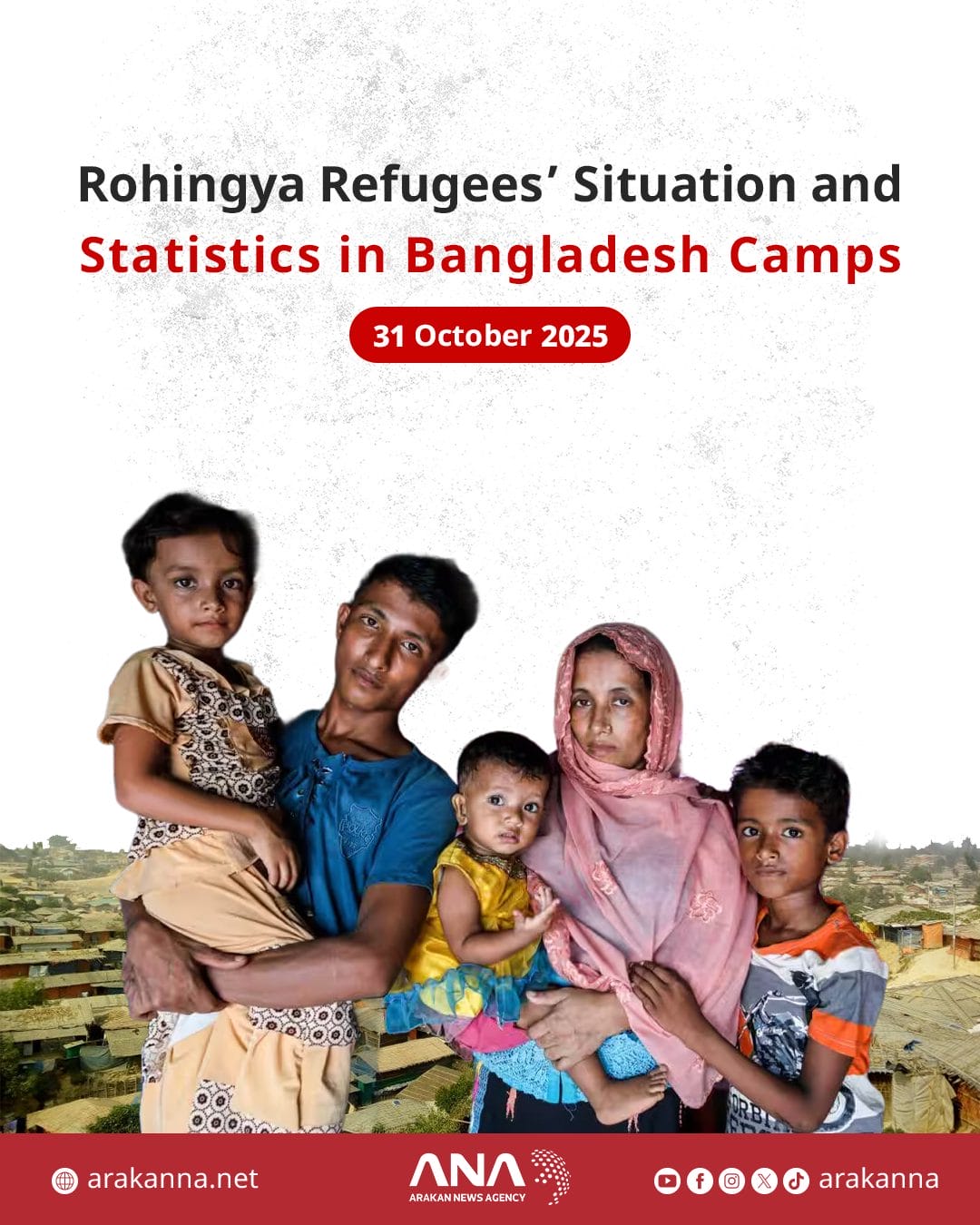Arakan News Agency | Exclusive
Hundreds of Rohingya are stranded on the island of “Galia Dwip” located in the Naf River between Myanmar and Bangladesh after fleeing harsh living conditions and increasing persecution in the town of Buthidaung, which is under the control of the Arakan Army, according to local sources and press reports.
Sources confirmed to Arakan News Agency that the Arakan Army recently expelled Rohingya residents from their original villages in Buthidaung and replaced them with ethnic Rakhine individuals. These displaced people were forced to temporarily reside on farmlands near the village of “Nan Yar Kunni”, where they constructed primitive tents that are now uninhabitable due to seasonal rains and floods, threatening their lives.
Reports suggest that the deteriorating conditions forced these Rohingya to flee with their families and children amidst daily suffering and severe psychological trauma, as they live without adequate shelter or food.
The Arakan Army is also accused of systematic violations, including forced displacement, compulsory recruitment, arbitrary arrests, financial extortion, and imposing exorbitant taxes, leading to deliberate deterioration in their living conditions, pushing them to flee by any means.
According to local sources, the Arakan Army has established human trafficking networks operating with its consent to smuggle the Rohingya from Buthidaung to Bangladesh, noting that hundreds of families have been trafficked via these networks to the island of “Galia Dwip”, at the cost of 1.5 million Kyats from Buthidaung to Maungdaw, and then 650,000 Kyats to reach Bangladesh, but they are now stranded due to heightened Bangladeshi border security.
It was added that only about 12 families managed to cross on the morning of August 6 and enter refugee camps, while the rest of the families remain stranded on the island, waiting for an opportunity to cross.
In the same context, Rohingya residents in Maungdaw are also preparing to flee, with rising concerns about the return of Myanmar Army control over the region. Some have started preparing their documents and necessities, while others plan to seek refuge in temporary camps like “Hla Pho Kaung” north of Maungdaw.
It is worth noting that the Arakan Army controls about 90% of the state, and the Rohingya under its rule suffer from extensive violations, including the closure of their homes after malicious complaints, seizure of their homes, confiscation of their valuable possessions, displacement of many families, and strict restrictions preventing their movement between villages after establishing a network of security checkpoints at the entrances and exits of each Rohingya village.
The Arakan Army launched a military campaign in November 2023 against the Myanmar Army to control the state, managing to take control of 14 out of 17 towns. The ongoing conflict has affected the Rohingya, who have faced violence, forced displacement, and persecution from both sides, adding to the ordeal they suffered during the genocide campaign by the Myanmar Army in 2017, which forced nearly a million of them to flee to Bangladesh.

